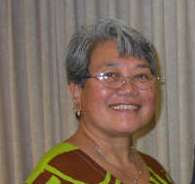He Ali'i ka 'aina; he kauwa ke kanaka.
The land is a chief; man is its servant. Pukui 531Land has no need for man, but man needs the land and works it for a livelihood.
It seems as though we have forgotten our responsibility to the land, the ocean, and the sky. Much of our concentration is on technology and we are forgetting the foundation upon which our lives are built. Getting a close understanding of our relationship between the land, the ocean, and the sky is important in building a lifestyle which can be sustained unto itself.
For many of our children, food comes in plastic bags or is placed on foam trays wrapped with plastic wrap. Ask a teenager to kill and clean a chicken and I can almost guarantee that that youngster would have a quizzical look on his or her face. Ask that youngster's mom to take on the task and most mothers who are in their 30s or 40s would not know how to kill and clean a chicken either.
Relying on growing, gathering, or raising our own food is not a step backwards. Rather, it is a step into the future to protect food sources for our families.








